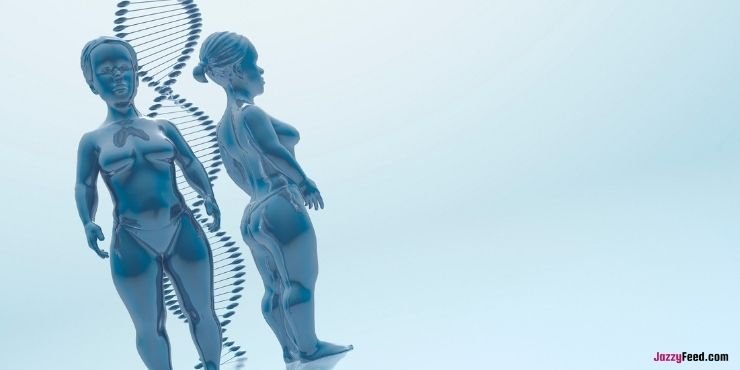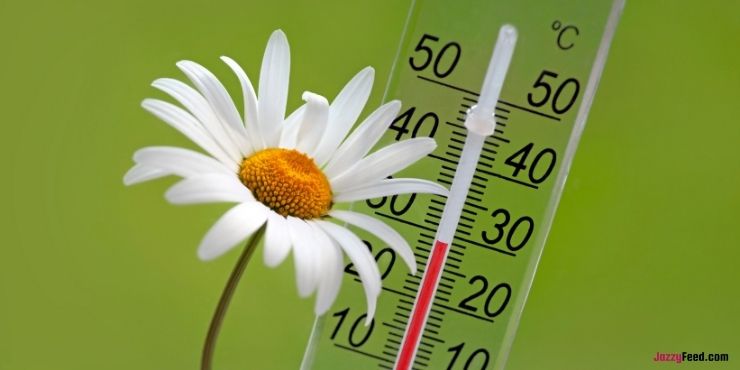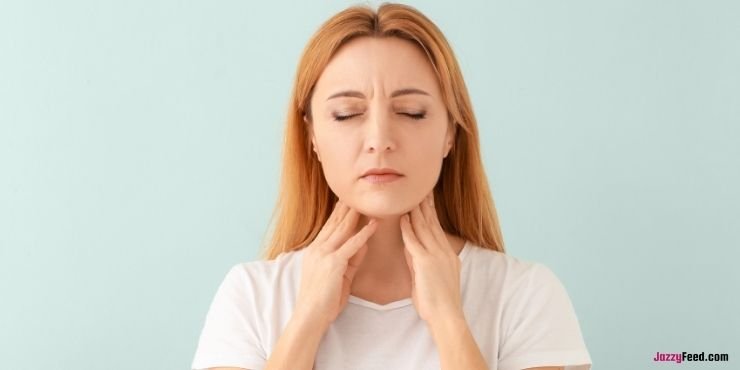Imagine yourself in a garden, and you’ll have a better understanding of how hair grows. The quality of its growth is entirely dependent on what is taking place “below ground.” Additionally, anything that interferes with the cycle—such as medication or illness; an infection; or chemicals—has the potential to prevent hair from growing in its proper place.
There are numerous ways to slow or stop hair loss. But what you should do depends on the cause of your hair loss. Some conditions, such as postpartum hair loss (telogen effluvium), may resolve on their own. Also, keep in mind that everyone sheds hair on a daily basis, which is completely normal.

You should consult a doctor if your hair loss is severe. Your doctor may be able to determine whether your hair loss is caused by thyroid problems, stress, scalp infections, androgenic alopecia, or simply aging.
Medication
Antidepressants, medications for high blood pressure, and so on can lead to hair loss as a side effect. Hair should grow back after you stop taking the medication, but that doesn’t mean you should stop taking it.

Minoxidil
According to the Mayo Clinic, this over-the-counter (OTC) drug, also known as Rogaine, works for roughly two-thirds of women who try it.
Every day, apply the liquid or foam to your scalp. Side effects include scalp irritation and acne near the application site. Irregular heartbeat and blurred vision are uncommon side effects.
Finasteride
This prescription pill, also known as Propecia, may help slow hair loss and even promote new growth. According to the Mayo Clinic, it is approved for men and works best for men under the age of 60. Women who are pregnant or may become pregnant should not take this medication.
Phenylephrine
By stimulating the follicle muscles to contract, topical phenylephrine may help with hair loss caused by stylingTrusted Source. This makes it more difficult to pull out hairs while brushing, for example.
Unfortunately, you will have to keep your eyes peeled for this medical solution. Scientists have created a formula known as AB102Trusted Source, but it has not yet been made public.
Genes
Genes are the most common cause of hair loss. Both parents can carry this gene. If your parents suffer from hair loss, you’re likely to suffer from it as well. By eating healthy foods and maintaining a healthy lifestyle, you can reduce the risks.
The most common cause of hair loss is hereditary baldness. Hereditary-pattern baldness is a natural condition caused by a combination of genetics, hormone levels, and the aging process. Almost every man and woman will experience hair loss or thinning as they age.

Change of Temperature
Loss of hair can be caused by sudden changes in temperature. During winter and summer, cold temperatures and UV light cause hair to thin. No matter what time of year it is, wear a hat. Cover your hair if you’re going to a sauna.
According to research, cold weather does not cause hair loss. The most common cause is a lack of humidity and hydration. During the winter, 823 women in a six-year study at the University Hospital of Zürich lost the least amount of hair.

Thyroid Problems
Hair loss can occur as a result of severe and long-term hypothyroidism or hyperthyroidism. The loss is diffuse, affecting the entire scalp rather than isolated areas. The hair appears sparse all over. Regrowth is common after successful thyroid disorder treatment, though it may take several months and may be incomplete.

Hormonal imbalances occur when:
- Menopause
- Endocrine disorders
- Diabetes
The endocrinologist you consult will conduct all the necessary tests and prescribe the appropriate treatment.
Very Strict Diets
In a short period of time, losing a lot of weight causes a lot of stress on the body, which affects the immune system. Hair loss can result from this. In addition to having an infection, your body has to work even harder. Regular physical activity will have a positive effect on your overall health instead of strict diets.

Mediterranean diet
According to a 2018 study, a diet rich in raw vegetables and fresh herbs, such as the Mediterranean diet, may lower the risk of androgenic alopecia (female or male pattern baldness) or delay its onset.
The best results were obtained when participants consumed large amounts of these foods – such as parsley, basil, and salad greens – on more than three days per week.
Protein
Keratin, a protein, is the main component of hair follicles. One 2017 study trusted Source of 100 people with hair loss discovered a number of nutritional deficiencies, including amino acids, which serve as the building blocks of protein.
While researchers note that more research is needed trusted Source, eating a protein-rich diet may help prevent hair loss. Eggs, nuts, beans and peas, fish, low-fat dairy products, chicken, and turkey are all good choices.
Vitamin A
Vitamin A is made up of retinoids, which have been shown to speed up hair growth. This vitamin may also aid in sebum production, allowing the scalp to be healthier and retain more hairs.
Fill your plate with vitamin A-rich foods like sweet potatoes, sweet peppers, and spinach, to name a few.
Chronic Stress
Hair loss can be caused by chronic stress because it affects blood circulation in the scalp. Significant stress causes telogen effluvium (TEL-o-jun uh-FLOO-vee-um), which causes a large number of hair follicles to enter a resting phase. Affected hairs may fall out suddenly when combing or washing your hair after a few months.
If the hair loss was caused by stress, it is usually restored quickly. Make sure you get enough sleep and relax. You can also consult with a specialist if you’re having trouble dealing with your emotions.

Anemia
Due to decreased blood circulation in the scalp, anemia can cause hair loss. If you experience symptoms such as fatigue, sleepiness, or apathy, you should get a blood test. Start by eating more iron-rich foods (like pomegranates, beef, apples, and so on). Have a blood test done and have a doctor prescribe you treatment if your condition does not improve.

Vitamin Deficiency
Hair loss may be caused by a vitamin or micro-element deficiency. To digest iron and stimulate collagen production, vitamin C is especially important (it makes the capillaries stronger). You may also experience hair loss if you lack vitamin B. Make sure you eat liver, eggs, and yeast to get adequate quantities of Vitamin B. Eat a wide variety of foods, especially those rich in vitamins C, B, and other healthy microelements. Get some vitamin supplements from your doctor and consult them.

Multivitamin
Scientists have discovered that vitamins A, B, C, D, iron, selenium, and zinc are all essential for hair growth and retention, particularly cell turnover. Daily multivitamins are available at most grocery stores and drugstores, or you can ask your doctor to prescribe one for you.
Vitamin D
According to one 2018 study, vitamin D is linked to non-scarring alopecia. Deficiency treatment may aid in regrowth. Consult your doctor about taking 800 to 1000 IU per day.
Biotin
Biotin, also known as vitamin H or B7, aids in the synthesis of fatty acids in the body. This process is critical to the hair life cycle, and a deficiency may result in hair loss. Consult your doctor about taking three to five milligrams per day.
Saw palmetto
This herb, derived from the fruit of American dwarf pine trees, may help men maintain testosterone levels. According to one 2004 journal article, 60 percent of participants who took saw palmetto experienced increased hair growth. The study’s dosage was 200 milligrams per day.
Ginseng
Ginseng contains phytochemicals that may promote scalp hair growth. More research is needed before specific dosages can be recommended. Meanwhile, consult your doctor about taking ginseng supplements or trying topical solutions containing this ingredient.
Scalp Diseases
Hair loss is most commonly caused by psoriasis, seborrheic dermatitis, and fungal infections (dermatophytosis). It could be the result of heredity, hormonal changes, medical conditions, or a natural part of aging. Anyone can lose hair on their head, but men are more prone to it. Baldness is commonly defined as excessive hair loss from the scalp. Hereditary hair loss with age is the most common cause of baldness. If you experience symptoms like itching and redness, you should see a doctor as soon as possible.

Bad Care
Using low-quality hair products, using a hairdryer, and other devices can damage your hair. Avoid using hair dryers, curling irons, and different chemicals. You should also consult a specialist about your hair care needs. SLS is also mentioned in many articles as a possible hair loss-causing agent, but it has no direct association with hair loss.

Regular washing
Washing your hair on a daily basis may help to prevent hair loss by keeping the scalp healthy and clean. The trick is to use a gentle shampoo. Harsher formulas may cause hair to dry out and break, resulting in hair loss.
Coconut oil
Researchers believe that coconut oil may help prevent hair damage from grooming and ultraviolet (UV) light exposure, according to a 2018 review of studies.
Coconut oil contains lauric acid, which helps bind protein in hair and protects it from a breakage at the root and strand. Massaging coconut oil into the scalp may improve blood flow and aid in hair regrowth.
Olive oil
Olive oil can be used to deep condition hair, preventing dryness and breakage. Olive oil is also a key component of the Mediterranean diet, which may aid in the slowing of genetic hair loss.
Consider applying a couple of tablespoons of olive oil to your hair and leaving it on for 30 minutes before washing it out.
Gentle styling
Avoid tight braids or ponytails, which can pull on the hair at the root and cause excessive Trusted Source shedding. Allow your hair to air dry while you’re at it to avoid irritating your scalp. Heat styling tools, such as curling or straightening irons, can also harm or break the hair shaft.
Hair processing
Chemical treatments, such as perms and hair colour, can also harm the hair and scalp. Inquire with your stylist about organic hair dyes and other alternatives that do not contain ammonia, peroxide, or para-phenylenediamine (PPD).
FAQs
What is the most common reason for hair loss?
Ancestral history (heredity). A hereditary condition that occurs with aging is the most common cause of hair loss. Androgenic alopecia, male-pattern baldness, and female-pattern baldness are all names for this condition.
Why does my hair fall out so easy?
Typically, there is some kind of trigger that precedes it. Hair loss can be caused by a variety of factors, including hormonal issues, certain types of hairstyling that can cause hair loss over time, and systemic diseases such as thyroid gland problems, lupus, and others.
How can I stop my hair loss completely?
- Hairstyles that pull on the hair should be avoided.
- High-heat hair styling tools should be avoided.
- Don’t bleach or chemically treat your hair.
- Use a shampoo that is gentle and appropriate for your hair type.
- Use a soft brush made of natural fibres.
- Consider using low-level light therapy.
How can I grow my hair faster?
- Avoid diets that are too restrictive.
- Examine your protein intake.
- Attempt caffeine-infused products.
- Investigate essential oils.
- Improve your nutrient profile.
- Allow yourself to be pampered with a scalp massage.
- Consider platelet-rich plasma (PRP) therapy.
- Keep the heat on.
Which vitamin is best for hair fall?
- Biotin. Biotin (vitamin B7) is necessary for the proper functioning of your body’s cells.
- Iron is required for red blood cells to transport oxygen.
- Vitamin C is required for iron absorption in the gut.
- You may already be aware that vitamin D is essential for bone health.
According to research, a lack of vitamin D in your body can cause hair loss. One function of vitamin D is to stimulate both new and old hair follicles. New hair growth can be slowed if you don’t have enough vitamin D in your system.
Can you regrow lost hair?
It is conditional. If a follicle has closed, disappeared, scarred, or hasn’t produced a new hair in years, then a new hair won’t be able to grow. However, if the follicle remains intact, it is possible to regrow the hair—or to improve the health of the existing thinner hairs.
Does hair regrow after hair fall?
Some follicles stop producing hair as we age. Hereditary hair loss, pattern hair loss, or androgenetic alopecia are all terms for this condition. This type of hair loss is usually permanent, meaning that the hair does not regrow.
How can a woman stop hair loss fast?
There are numerous ways to slow or stop hair loss. But what you should do depends on the cause of your hair loss.

